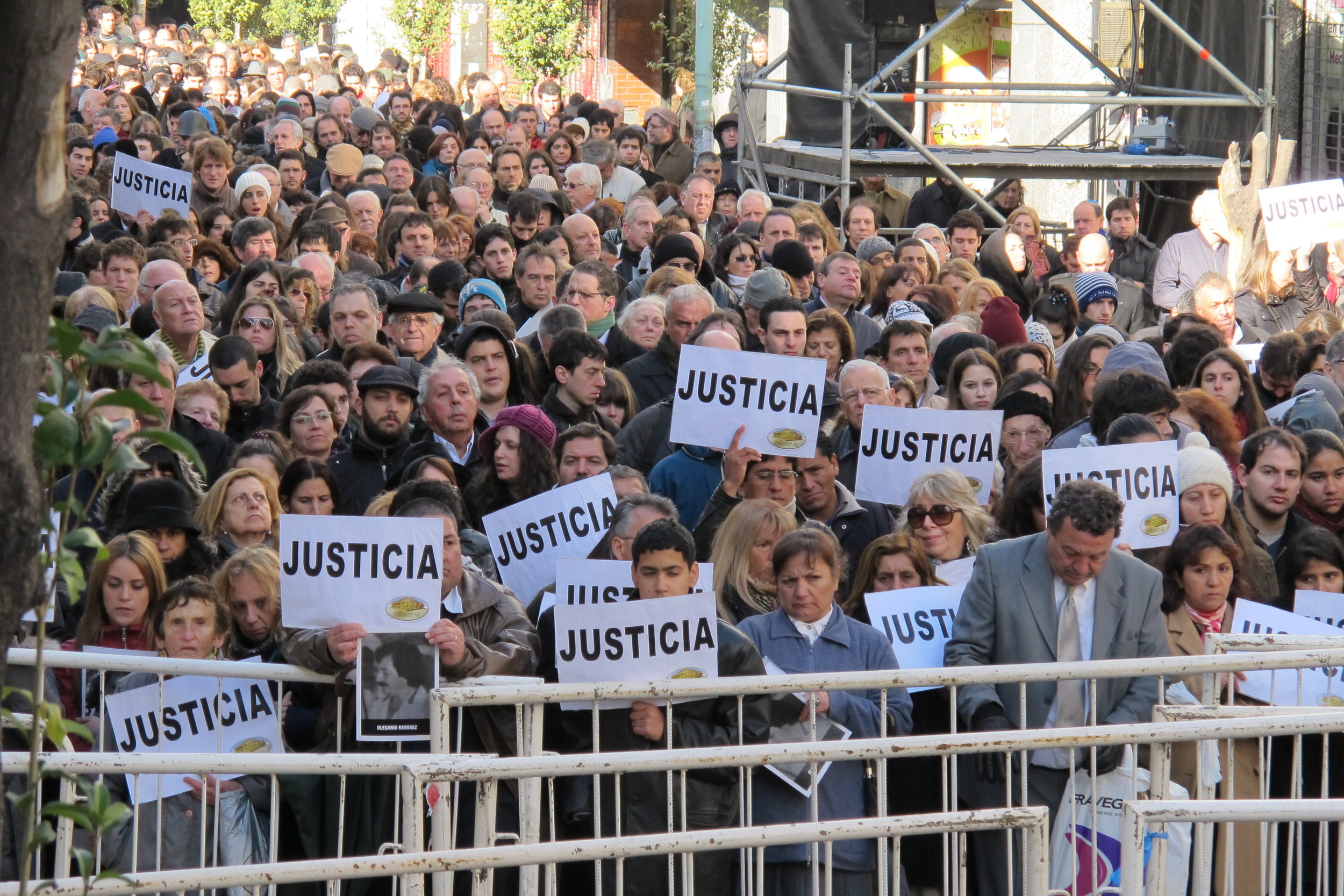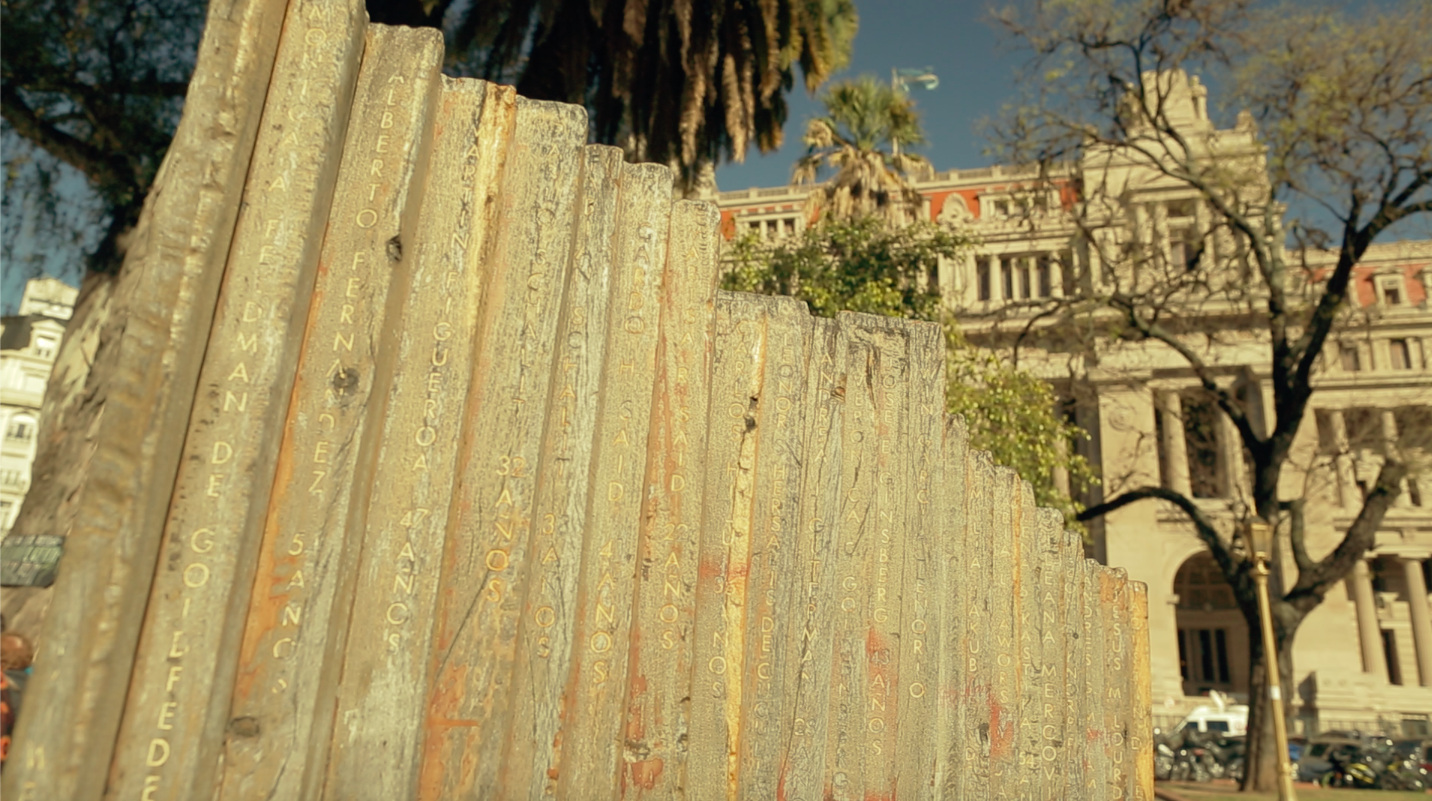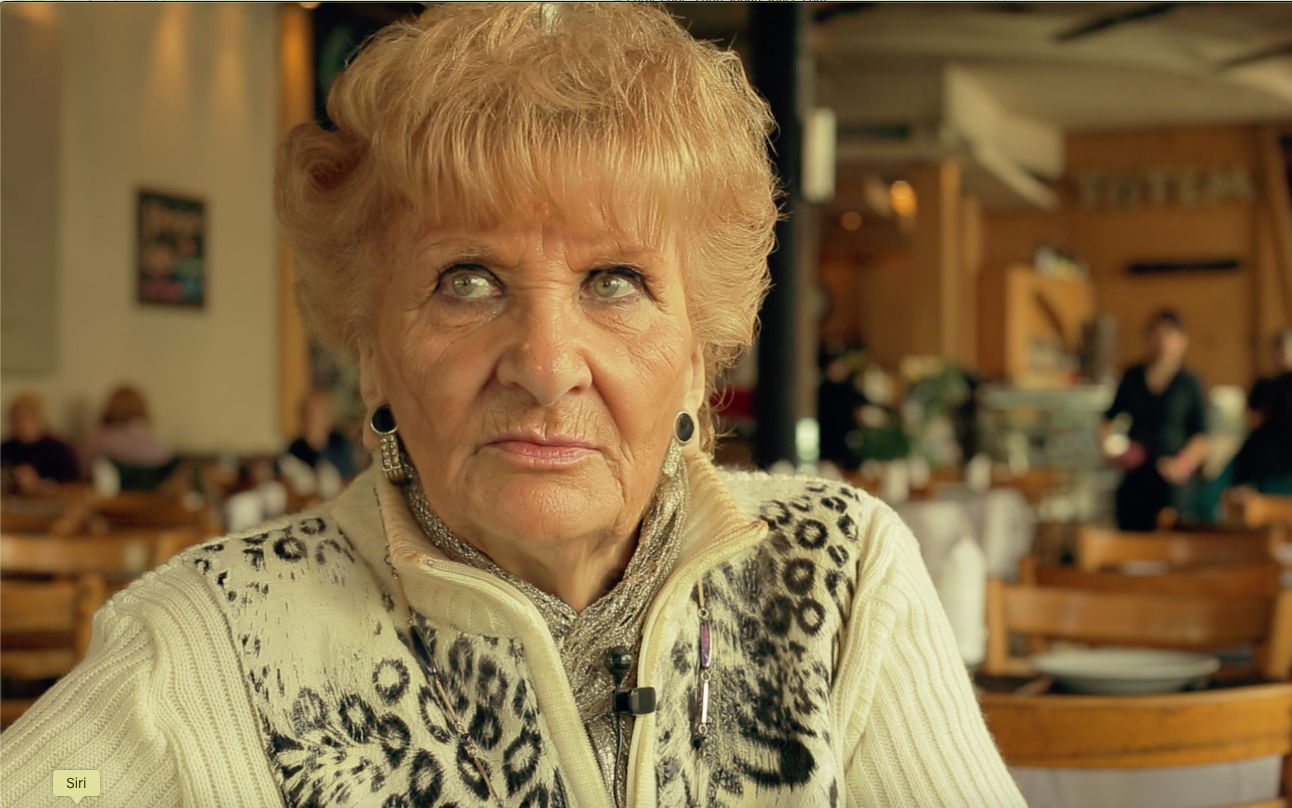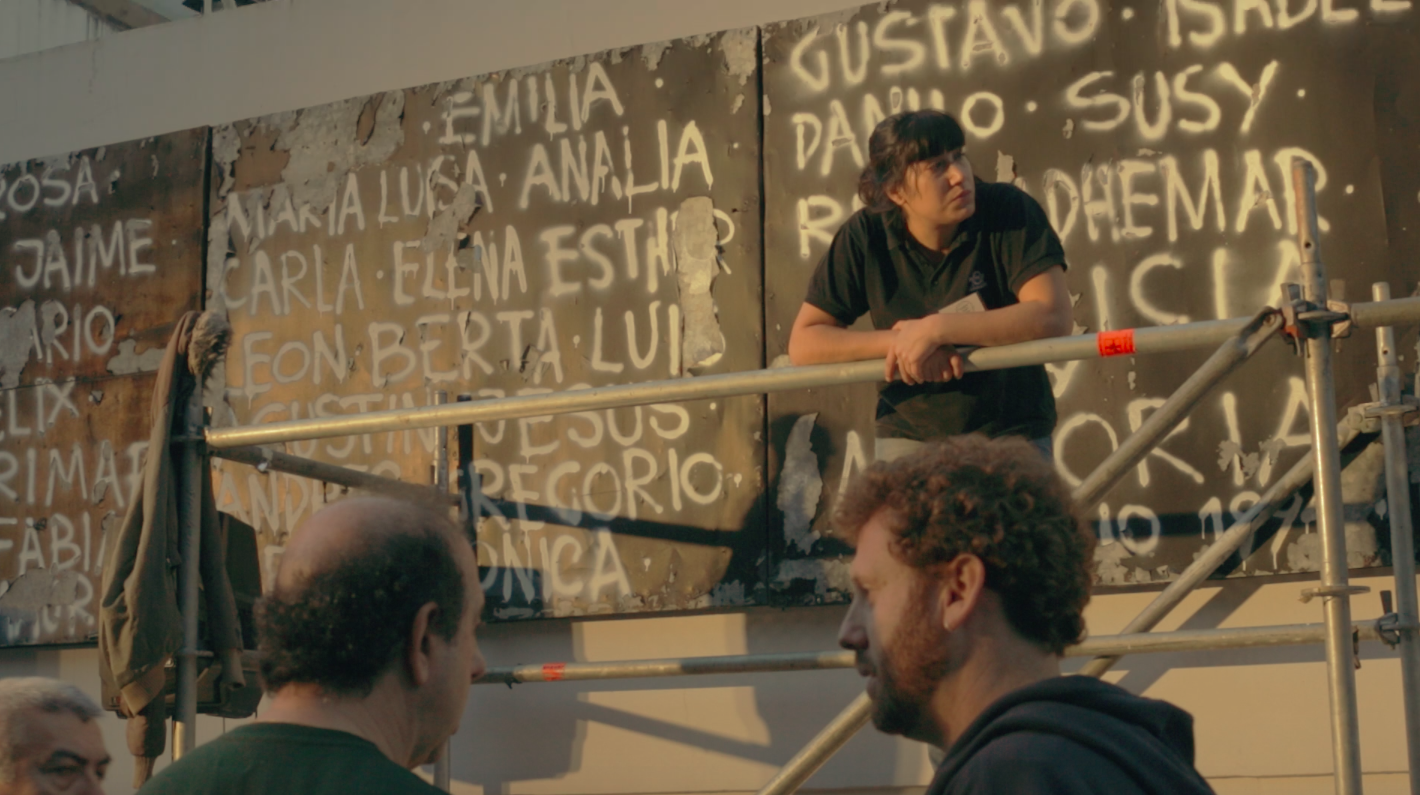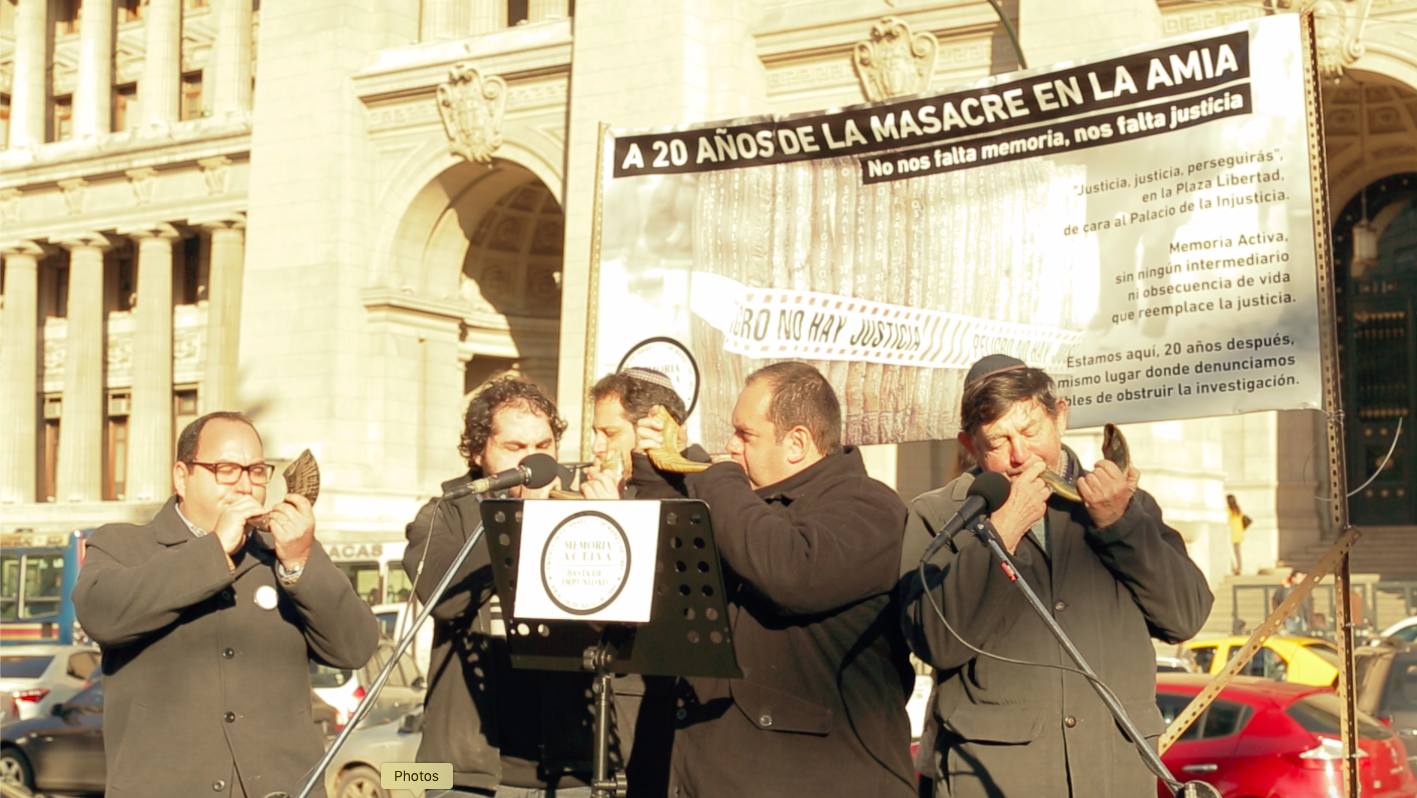
Synopsis
1000 Mondays tells the story of ordinary people facing the extraordinary loss and trauma of terrorism. Sofía’s daughter Andrea was just 28 years old when she was killed in the 1994 bombing of the main Jewish community center of Buenos Aires. On a Monday morning, Andrea happened to go into the AMIA building, located in the heart of the city center, on the fateful day when a bombing would destroy it. Andrea was one of 85 people killed that day, and hundreds more were wounded in the worst terrorist attack in Argentina’s history. And yet, 26 years later, it is still unsolved, leaving a profound trauma for Sofía and other family members of those killed, who are still grappling with the loss of that day. It also leaves a social trauma for concerned citizens who worry for their safety in a country where accountability and justice can be elusive. Despite the many years that have passed, and the many Mondays that have passed since that one day in July 1994, they are still hoping for some justice, or truth, or at the least, to find a way to hold on to the memory of their loved ones, so their lives are not forgotten as time moves forward, from Monday to Monday.
This film follows the lives of Sofía and other activists, all regular citizens who have chosen to fight for memory and justice, even when accountability might not be possible in their lifetime. For some, this takes the shape of weekly protests on Mondays—we find Benjamín, Isidoro, and Eugenia facing the High Courts once a week, calling for justice from Argentina. We follow their protests in front of the High Courts, as they blow the shofar (a ram’s horn typically used in Jewish religious practice), and remember the victims. We also look at the quieter moments of grief and activism, turning to the family members like Sofía as she remembers her daughter Andrea, in the rhythms of her daily life and in public protests and commemorations. Sofia holds onto her daughter’s memory, all in the hopes that Monday after Monday, Andrea and the other victims do not become lost forever in Argentina’s consciousness. Meanwhile, others advocate for justice in the courts, like the group Memoria Activa and the activist Laura Ginsberg, who lost her husband in the bombing, and leads the organization Apemia.
This film documents their journey as they are grappling with a loss that may never be resolved. But in the process, these ordinary people find new meaning on the ground, reshaping a sense of community and social justice through their protests, and their friendships, through their seemingly ordinary gestures in the face of extraordinary loss, Monday after Monday.
*Special thanks to Sofía Guterman, Diana Wang (Generaciones de la Shoá), Anita Weinstein (Centro de Documentación e Información sobre Judaismo Argentino Marc Turkow), Isidoro Bronstein, Benjamín Guz, Eugenia Szejer, Laura Ginsberg, José Blumenfeld, Jack Fuchs, Memoria Activa, Ciudadanos de la Plaza, Familiares y Amigos de las Víctimas, Apemia.
*Photo credit - Juan Pablo Chillón. Monument designed by Mirta Kupferminc.

Sofía Guterman lost her only daughter, Andrea, in the July 18, 1994 bombing of the AMIA building in downtown Buenos Aires.
